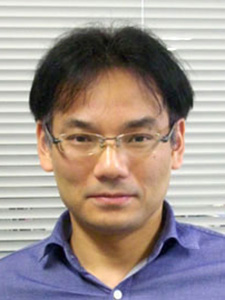

“Rapid decoding of neural information representation from ultra-fast fMRI signals measured at 7T magnetic field”
Dr. Yoichi Miyawaki
Professor, The University of Electro-Communications
Date/Time
Tuesday, November 1 2022, 10:50-11:40
Abstract
High spatiotemporal resolution is crucial for neuroimaging techniques to improve our understanding of human brain functions. Recent progress in fMRI allows us to capture brain activity patterns at a submillimeter spatial resolution, yet is believed insufficient in terms of temporal resolution. However, fMRI signals actually preserve a subsecond precision of hemodynamic response latency for each voxel and are capable of detecting oscillatory hemodynamic changes up to 0.75 Hz, suggesting its potential to reveal fast neural dynamics than commonly believed. To examine how fast neural information can be derived from fMRI signals, we have been testing ultra-fast sampling (TR, 125 ms) of ultra-high field (7T) fMRI signals. In this talk, I’d like to share our recent results about the ultra-fast fMRI experiments, showing that 1) time-resolved decoding can capture information represented in the acquired signals in less than 2 s after the signal onset, significantly faster than the peak latency of the hemodynamic response, 2) the peak latency of the decoding accuracy is independent of variations in the hemodynamic latency of voxels used for decoding, and 3) sparse decoders automatically prune off vein-rich voxels from the model around the peak latency of the decoding accuracy. These results suggest that multivariate pattern analysis of ultra-fast fMRI signals achieves natural filtering of slow and unreliable nonneuronal vascular components, allowing fast and temporally-precise analysis of neural activity using fMRI signals.



